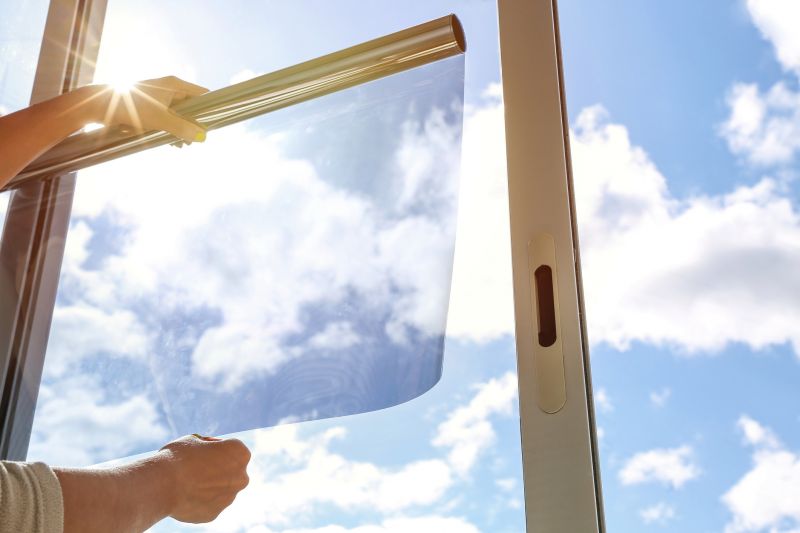Popular Choices Of Window Tinting Products For Optimal Privacy and UV Blockage
Find effective window tinting options that maximize privacy and block harmful UV rays while maintaining clarity and style.
 Window tinting products serve a variety of purposes, from enhancing privacy to reducing glare and heat transfer. They are available in numerous styles, shades, and materials to suit different preferences and needs. Whether for residential, commercial, or automotive applications, choosing the right tinting products can significantly impact comfort and aesthetics. It is important to consider factors such as film quality, UV protection, and ease of installation when selecting window tinting solutions.
Window tinting products serve a variety of purposes, from enhancing privacy to reducing glare and heat transfer. They are available in numerous styles, shades, and materials to suit different preferences and needs. Whether for residential, commercial, or automotive applications, choosing the right tinting products can significantly impact comfort and aesthetics. It is important to consider factors such as film quality, UV protection, and ease of installation when selecting window tinting solutions.
Top Overall Option
Ceramic Window Tint Film
Ceramic window tint films are highly regarded for their ability to block UV rays and reduce heat without significantly affecting visibility. They are composed of non-metallic, non-conductive ceramic particles that provide excellent performance across various conditions. This type of film is often favored for its durability and clarity, making it a versatile choice for both automotive and building applications.
Types of Products For Window Tintings
Dyed Window Tint Films
Dyed films are made with a layer of dye between an adhesive layer and an outer protective layer, offering affordability and effective glare reduction.
Metalized Window Tint Films
Metalized films incorporate tiny metallic particles to reflect heat and light, enhancing privacy and cooling effects.
Ceramic Window Tint Films
Ceramic films use ceramic particles to block UV rays and heat while maintaining high visibility and signal clarity.
Hybrid Window Tint Films
Hybrid films combine dye and metal layers to balance cost, appearance, and performance.
Carbon Window Tint Films
Carbon films provide a matte finish with good UV protection and color stability without metal content.
Reflective Window Tint Films
Reflective films are designed to minimize heat transfer and enhance privacy through their mirror-like appearance.
Vapor Deposited Films
Vapor deposited films offer high durability and clarity, often used in premium applications.
Security Window Films
Security films are thicker and designed to hold glass together in case of breakage, providing an added layer of safety.
Decorative Window Films
Decorative films feature patterns, frosted, or etched designs to enhance aesthetics while providing privacy.
Solar Control Films
Solar control films are optimized to reduce solar heat gain and glare, improving energy efficiency.
Popular Choices
Ceramic films are trending for their high performance in UV blocking and heat reduction without signal interference.
Metalized films remain popular for their reflective qualities and added privacy benefits.
Dyed films continue to be a common choice for affordability and glare control.
Carbon films are favored for their matte finish and stable color over time.
Reflective films are often selected for their ability to reduce heat and increase privacy.
Security films are gaining popularity for safety enhancements in homes and businesses.
Decorative films are trending for interior design and privacy solutions.
Vapor deposited films are appreciated for their clarity and durability.
The market offers a wide array of tinting films, including dyed films, metalized films, ceramic films, and hybrid options. Dyed films are often more affordable and provide good privacy and glare reduction. Metalized films reflect heat and light, helping to keep interiors cooler. Ceramic films are known for their high performance in blocking UV rays and maintaining visibility without interfering with electronic signals. Hybrid films combine features of different types to balance cost, performance, and appearance.
Installation methods vary from DIY kits to professional services. While DIY options can be cost-effective, professional installation ensures a more precise application and longer-lasting results. Proper surface preparation and application techniques are essential to avoid bubbles, creases, or peeling over time. Additionally, local regulations and tinting laws should be reviewed to ensure compliance with regional standards.
Ultimately, selecting the right window tinting product involves balancing factors such as durability, appearance, and functionality. Understanding the different types and their benefits can help consumers make informed decisions that enhance the comfort and value of their property or vehicle.
Key Buying Considerations
- Determine the primary purpose of tinting, such as privacy, heat reduction, or UV protection.
- Choose the type of film based on your performance needs and budget constraints.
- Check local regulations and tinting laws to ensure compliance with regional standards.
- Consider the clarity and visibility of the film to avoid obstructed views.
- Evaluate the durability and scratch resistance of the film for long-term use.
- Assess the ease of installation, whether DIY or professional services are preferred.
- Look into the warranty and manufacturer reputation for quality assurance.
- Decide on the desired color and shade to match aesthetic preferences.
- Review the compatibility of the film with electronic devices and signals if relevant.
- Consider the maintenance requirements for cleaning and upkeep of the tint.
- Determine if additional features like glare reduction or security benefits are necessary.
- Factor in the potential impact on vehicle or property resale value.
- Compare different types of films for their heat rejection and UV blocking capabilities.
- Assess the environmental conditions where the tint will be applied to select suitable materials.
